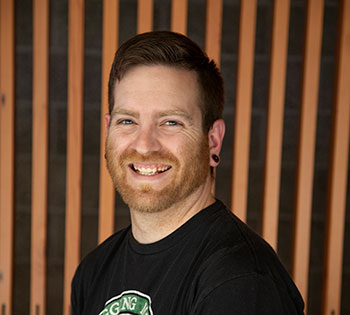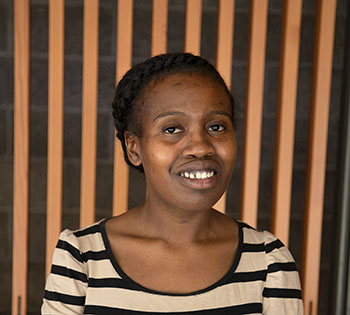Global Classroom: Video Chat with Vietnam
Students at UW Tacoma spent a quarter studying plastic pollution from a global perspective, working with students in Vietnam.
Cultural humility isn’t in the course title but it’s a prominent subject in Senior Lecturer Ellen Moore’s Ecology, Inequality and Popular Culture (TCOM 312) course. The class follows the pedagogy of the COIL Fellows Program, which “fosters global exchange and understanding through online learning environments.”
Moore partnered with faculty at two higher-ed institutions in Vietnam — Huế University College of Law and Nha Trang University — to develop a collaborative course that addresses environmental issues, specifically plastic pollution in water. Moore had worked in Vietnam as part of the U.S. State Department. “I love Vietnam,” she said. “The environment is so beautiful and the people are very conscientious.”
Students in the three classrooms met for the first time earlier this quarter. The 14-hour time difference turned out not to be a problem. Moore’s class is in session Monday and Wednesday afternoons from 4 pm to 6 pm (6 am to 8 am in Vietnam). “It just worked out,” she said.
The groups exchanged questions before the video chat and elected representatives from each class as speakers. “In total, there were about forty people and that would have been chaotic if everyone started talking,” said Moore. The conversation seemed rigid at first, with each group sticking to their questions. “One of my students leaned into the camera and raised his hand,” said Moore. “He asked a question about favorite sports and all of a sudden people loosened up and started talking and it was just beautiful.”

UW Tacoma junior Bryce Albright is in Moore’s class. The communication major says working with students in Vietnam provided him with valuable experience. “I’ve never been outside the country,” he said. “I feel like this was a good introduction to learning more about different cultures.”
Together, students in Vietnam and here at UW Tacoma will work on different projects. “We have students that are making bird feeders out of plastic bottles or turning plastic into reusable grocery bags,” said Moore. “There’s also a group that is doing a beach clean-up in Vietnam in conjunction with a group of my students who are doing a local beach clean-up.”
Students doing the clean-up will create a video about their experience. “We talked about cultural humility, about not taking over the process,” said Moore. The material — pictures, video — will be sent back and forth until the work is complete.
Moore created a Facebook group to help students from the different universities connect. She wanted to put some of the responsibility of communicating in a second language on her class. “I tested Google Translate with some of my friends in Vietnam and they were happy with the results,” said Moore. When you look at the Facebook page you see posts in English from students in Vietnam and posts in Vietnamese from students at UW Tacoma. “I didn’t want to place the burden on our friends in Vietnam to speak English,” said Moore.

Moore calls TCOM 312 her “dream course.” She came up with the idea for the class a few years ago and fine-tuned it over time. This spring marks the first time the class has been offered at UW Tacoma. Moore says students in TCOM 312 “explore how nature becomes a key part of intersectionality involving different identities in pop culture.” UW Tacoma junior Sequoia Conner appreciated this facet of the course. “I really learned a lot about how environmental issues are connected to issues of race and gender,” she said.
During the final four weeks of the quarter, students take what they’ve learned and examine it from a global perspective. “I always wanted to create this class. It adds a whole new layer to this notion of intersectionality because it adds the environment, environmental racism and environmental justice,” said Moore.



